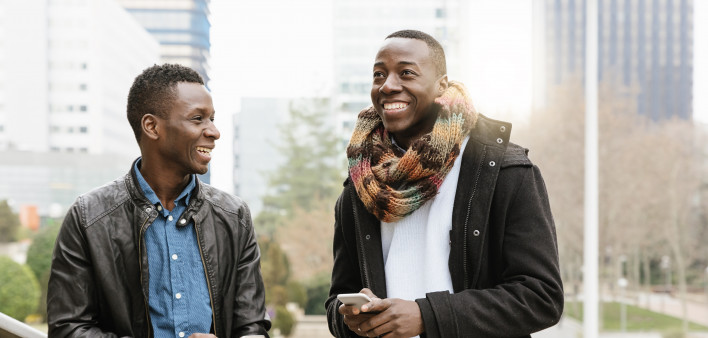Black long-term HIV survivors in Los Angeles experienced major trouble paying bills, housing and feeding themselves during the early days of the COVID-19 pandemic, and people who experienced such disruptions were five times less likely to be taking their HIV medications as prescribed.
These are the findings of a recent paper published in the Journal of Acquired Immune Deficiency Syndrome.
Participants were drawn from the Project Rise randomized controlled trial of antiretroviral treatment adherence among Black Americans living with HIV in Los Angeles. Most were cisgender gay or bisexual men. The median age was 50, with a median of 19 years living with HIV. More than half had ever been incarcerated, and 41% had incomes at or below $10,000 a year.
Participants had already been speaking with researchers in intensive structured motivational interviewing sessions aimed at increasing participants’ willingness to take the HIV medications they’d been prescribed. In addition to the initial month of sessions and two “booster” sessions, participants used pill bottles with electronic bottle caps (known as medication event monitoring systems, or MEMS) to record how often they opened the bottle to take their medications. Then researchers followed participants to track their medication adherence for 12 months.
When the pandemic arose, researchers contacted 136 study participants between May and July 2020 and asked them how the pandemic was affecting them materially and psychologically. They also asked about the participants’ level of mistrust in government officials and health professionals regarding news about the coronavirus and how likely they were to get a vaccine for SARS-CoV-2, the virus that causes COVID-19, when it became available.
One hundred and one participants agreed to answer questions. Nearly two out of three reported significant impact on their livelihoods and material stability due to the pandemic: 19% had lost their jobs or had to close their businesses, and the same proportion said they didn’t have enough food to eat. Nearly one in three (29%), reported inability to pay key bills, like rent and utilities; 25% reported having difficulty traveling because transportation had been affected; and 33% reported working fewer hours. In addition, 8% newly experienced homelessness during the early days of the pandemic.
Almost everyone (97%) reported mistrust related to COVID-19, primarily of government officials. Half of participants said they believed COVID-19 was man-made, and 30% said they believed that there’s a cure for COVID-19 that health care providers were withholding from Black people.
Overall, in the spring of 2020, people who espoused high COVID-19 mistrust were 15% less likely to say they would get a coronavirus vaccine. The same level of mistrust was associated with a 12% drop in willingness to get treated if they did have COVID-19.
Though they didn’t provide data showing the correlation, study author Laura Bogart, PhD, of the RAND Corporation, and colleagues said this level of COVID-19 mistrust was “associated with responses on general medical mistrust and HIV-related mistrust scales” as well.
“Both types of mistrust arose, in part, after perceived initial harmful or neglectful government responses to these infectious diseases,” wrote the authors. “Accordingly, the types of conspiracy beliefs that have arisen in response to both conditions have been similar, with manifestation of high endorsement of ‘malicious intent’ theories (e.g., around governmental intentional harm to communities of color).”
Click here to read the full study.







Comments
Comments